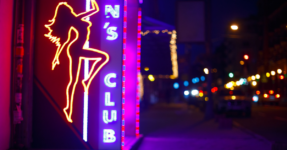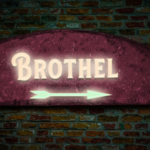How Can I Open a Strip Club in New South Wales

Strip clubs are a form of adult entertainment where patrons from a diverse range of backgrounds and occupations, from politicians to tradespeople to business owners, can relax, unwind and take their minds of the stresses of their lives.
But what about those who want to own and operate such a venue?
Following on from our blog on operating a brothel in NSW, here’s a summary of the rules and regulations when it comes to operating a strip club in the premier state.
What Constitutes a Strip Club?
Firstly, it’s important to distinguish strip clubs from other formers of adult entertainment which have strict regulatory regimes such as brothels or other sex-on-premises venues.
A strip club is generally a venue where performers (“strippers”) remove part or all of their clothing as part of a “strip tease” but no sexual services are provided to patrons.
Some local councils have more extensive definitions of what constitutes a strip club, for example the City of Sydney’s Sex Industry Premises Development Control Plan 2006 defines a “striptease club premises” as a premises:
“providing striptease acts, erotic dancing, tabletop, or podium performances, private dancing, peepshows, or nude or semi nude bar/waiting staff. Sexual intercourse does not take place on site. Premises may require payment to gain entry/view the performance, and may be liquor licensed.”
To avoid regulation as a brothel, it’s crucial that strip clubs avoid “acts of prostitution” which would include vaginal, anal and oral sexual intercourse, as well as masturbation and the use of sex toys.
To avoid falling within this definition (as well as to comply with liquor license requirements) all strip clubs in NSW have a strict “no touching” policy when it comes to performers.
Who Can Be a Stripper?
NSW law does not set a minimum age for stripping. However, as all strip clubs in NSW are licensed venues, only persons over the age of 18 years old can be on the premises, and therefore perform.
Most strip clubs hire performers as “independent contractors” rather than employees. It should be noted that the distinction between an independent contractor and an employee is based on the type of worker relationship, regardless of the expectations of either party.
To avoid having to pay employment entitlements in the future, it’s important that the relationship between performer and club owner resemble the somewhat arm’s length relationship of a contractor.
As part of the contract with performers, club owners should make explicit the rules regarding charging customers for private dances as well as tipping. However, a club owner should not be determining when and how a performer (as an independent contractor) provides services within a venue.
Getting Approval to Operate
All strip clubs must obtain approval from local council in order to operate. Depending on local government rules they may need to seek approval as a “nightclub” or as an “adult entertainment premises”.
Each council has its own set of rules regarding the location of strip clubs and obligations regarding signage, “spruiking” activities and other requirements for operating in a locality.
If a club is serving alcohol, a liquor license must be obtained by applying to Liquor & Gaming NSW.
Generally, a strip club would need to apply for an “on premises license” which requires the regulator to consider the cumulative impact of the venue on the area. Strict conditions can be placed on liquor licenses including how strippers are dressed and what kinds of acts can be performed in the venue.
In 2019, Sydney strip club king Ulysses Flevotomos was ordered to pay $15,000 in legal costs and fines after turning a blind eye to naked lap dancing, fondling and kissing between strippers and patrons at one of his venues, contrary to liquor licensing conditions.
Other considerations
Strip club operators should also consider the unique occupational health and safety considerations of operating a strip club venue and take actions accordingly. This can include:
- Ensuring separate patron and performer access and exists.
- Ensuring performers are not photographed or filmed without their consent.
- Providing a duress alarm system or other safety system should performers require.
- Providing adequate security for the protection of performers and patrons.
- Ensuring stages, podiums and other performance areas are clean and safe to sue.
As with brothel owners, it’s also important that strip club operators understand the serious criminal offences of causing sexual servitude, sexual slavery and sexual trafficking.






